Getting proper education is a constant requirement for any human being and their basic right. This doesn’t exclude even the youngest among us from being granted quality education that will help them as they grow and engage the world. In the field of preschooler education, Montessori education is firmly reinforced.
The method focuses on self-directed activity, hands-on learning while reinforcing that learned information through collaborative play. When educated through Montessori kids will be allowed to make creative choices while learning, being motivated and guided by teachers into realizing the solutions that aren’t too rigid. This method of education covers birth to middle school area of a kid’s life and is adjusted for each development step of your kid.
However, here we will see how well it benefits preschooler age kids, although these benefits extend to all of Montessori education. With all that said, we should turn our heads towards a more important question. What are the benefits of Montessori education? After all, we want the best for our kids and a good educational process is necessary for any child. For this reason, we have assembled the benefits of this educational method that will hopefully provide you with an answer.
1. It stimulates different skills
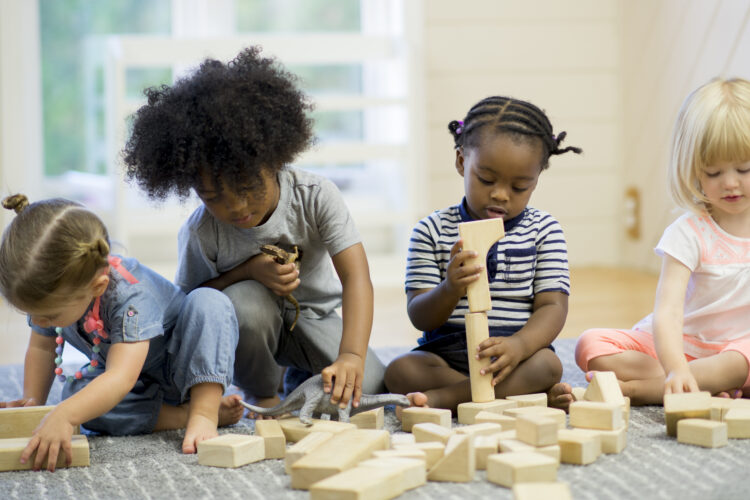
The early development of a child is one of the more important parts of their life. These are the stages where they learn the best about the world surrounding them and gather a lot of skills that can help them later in life. A child properly educated in these stages will be well equipped for the next step in their development.
The Montessori method of education aims to prepare the child through the kid’s own involvement. The idea is that if a child is given the ability to freely explore and practice new skills they will do so much better than through rigid, time-limited access to those skills they’d usually have. Montessori classrooms offer just that with multiple items that can help a kid practice a skill present to them at any point. Said items have had years of refining and tests that have made them properly fit any child within their age group.
2. Social development
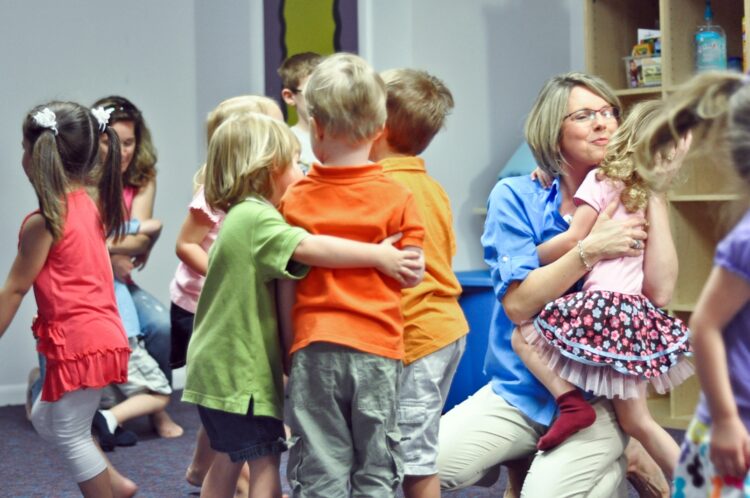
This may be the most important part of a child’s development. Proper social development teaches children to respect each other, help them, and interact. Additionally, it teaches them how to approach certain social situations and engage in quality resolution of conflicts.
In Montessori classrooms, children of different ages are put in the same classroom. This allows for a more mixed grouping of kids and helps form respect for the peers, younger, and older kids throughout the course of the education. Children will be able to cooperate to resolve some of the more difficult Montessori education tasks, building a sense of teamwork in the group. It all helps create a sense of community, helping kids feel even more encouraged to start their own tasks and ask others for help if they can’t resolve them.
3. Teachers are focused on guidance rather than strictness
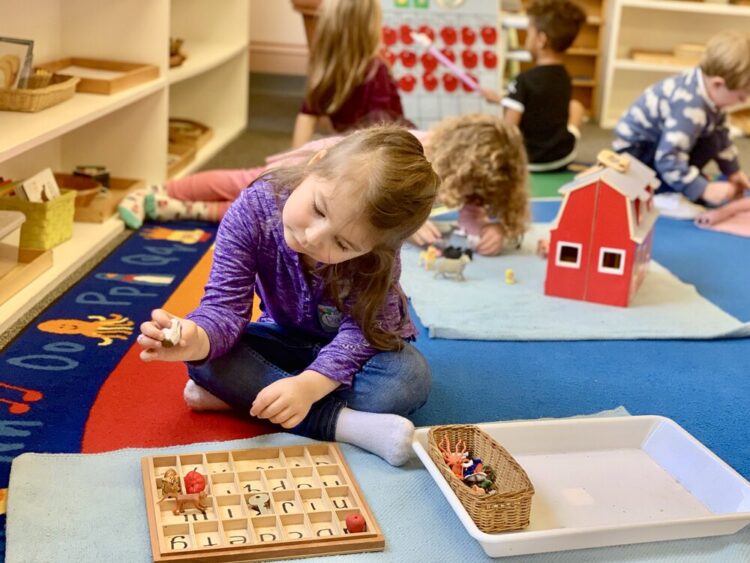
Teachers are going to be some of the first authority figures, apart from parents, that child encounters. It’s much more fruitful to have said authority figures provide proper guidance and direction towards success rather than acting solely as a caretaker.
The teacher involved with Montessori education are highly trained as understanding different children’s needs is paramount to achieving the most out of the unique setting the child is put in. Their goal is to steer and guide a child’s progress either during individual endeavors or group ones. However, activities are still oriented around children finding their own interest in activities. The teachers are simply supposed to guide them and encourage them. This freedom of choice that a child gets makes learning more enjoyable while developing an enthusiasm for it in the child. The sense of independence is incredibly important as it makes the child feel even more accomplished when they handle a challenge all on their own.
4. Montessori education can be employed at home
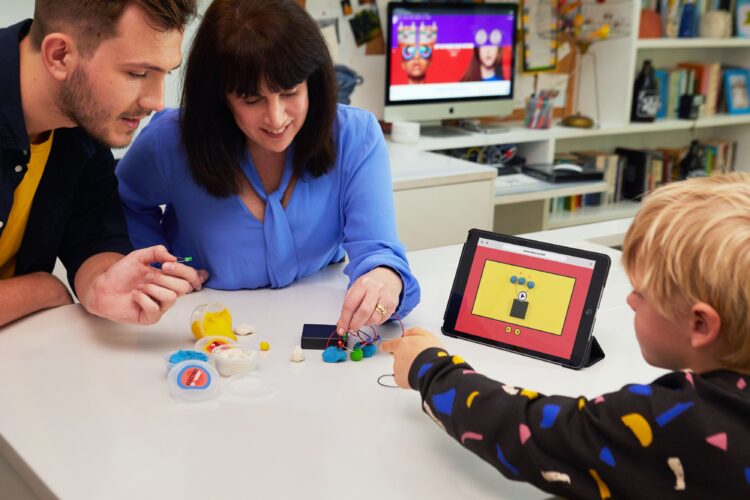
The important part of all the usually applied styles of education is their applicability at home. This goes double for those parents who are ready to practice with their kids to help them achieve their potential.
Montessori is very much applicable at home and it also includes the simple housework that will help the child slowly understand how to keep a house in order while also giving them a sense of involvement and accomplishment. However, you won’t start them off with actual chores. Young kids, around 12 to 18 months, should be taught some very simple tasks such as taking items out of the kitchen when they want to drink or need a plate. This can even extend to wiping spills, maybe ones they’ve created by pouring water or milk. Having kids of this age learn how to brush their hair as well as other simple hygiene and cosmetic tasks is very useful as they get a sense of tidiness as well as the simple joy of properly finishing a task. It also prepares them for being more involved in preschool. Around the age of 3, you can already have your kid around in the kitchen and bedroom helping with some very basic chores. They could wash and peel vegetables, make the bed, pack the clothes into correct drawers. All of which will satisfy the kid’s need to learn and engage without being overwhelming to them. If you check out katanabana.com, you can also get kids kitchen stool to help your kid reach the kitchen counter and dishes that they may want to use. Don’t forget that your kid should never be bogged down by these activities, they should motivate them. While adults don’t see much joy in folding laundry, kids see it as a little game
5. Learning that sticks through life
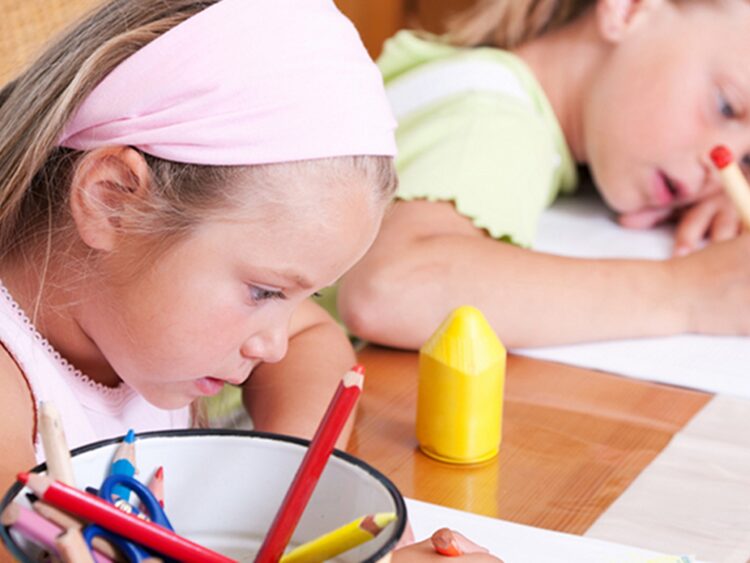
When our child learns something we’d prefer it sticks and improve their future educational endeavors. While the educational system is made in a way where previous lessons are built upon there are plentiful cases where children either didn’t properly understand older material or do not have a proper enough studying method to engage them.
Throughout the years, studies have been conducted that have shown the utility of Montessori education in helping kids in their journey throughout the educational system. Firstly, they are more socially adjusted due to the fostered sense of community that forms within Montessori classrooms. Secondly, they are more creative in their problem-solving rather than always trying to follow patterns. Thirdly, the kids showcased a much healthier behavior towards others which made them attract more of their peers making for better socialization. The ability to employ cooperative problem solving they’ve indulged in during preschool also helps when those group projects roll around. Overall, the method has made them a lot more adaptable while enhancing their problem-solving.
The post 5 Benefits of Montessori Activities for Pre-Schoolers appeared first on FotoLog.
from FotoLog https://ift.tt/3gn6o2h
via IFTTT



0 Comments